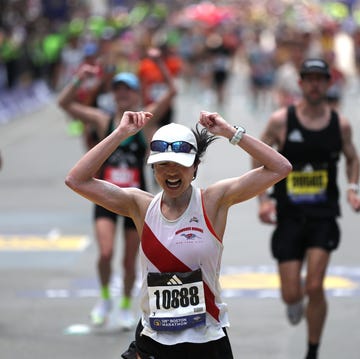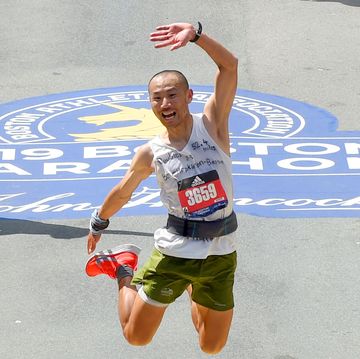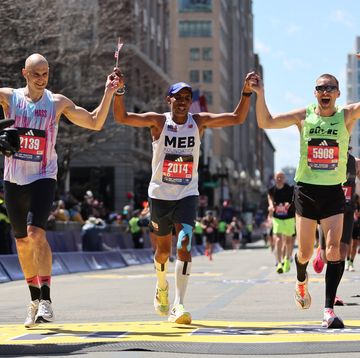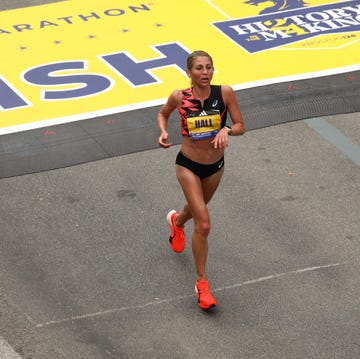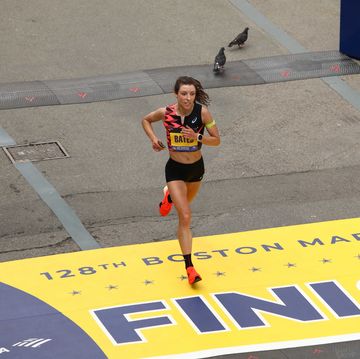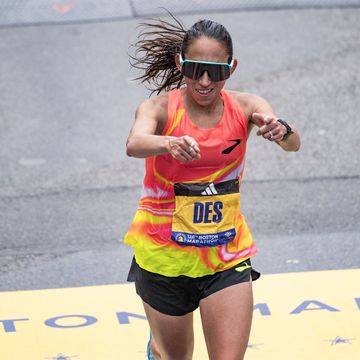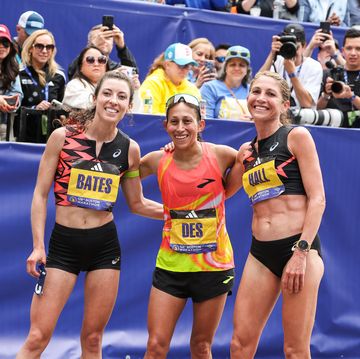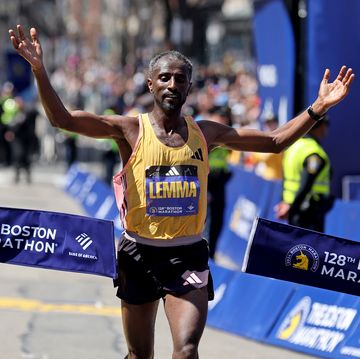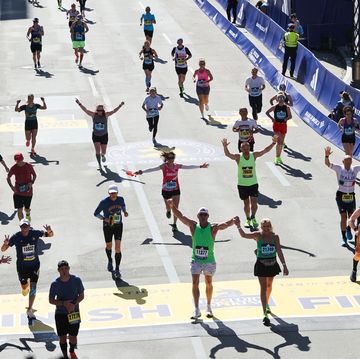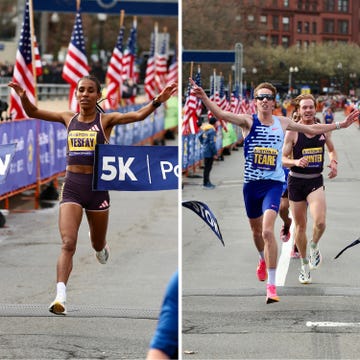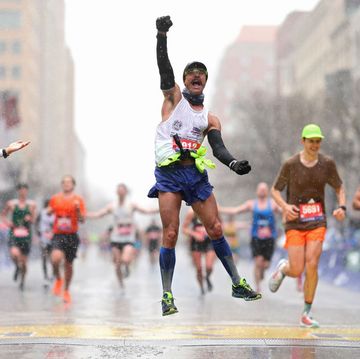Reebok has ended its sponsorship of two of the fastest distance runners it worked with, American Bobby Curtis and New Zealander Kim Smith, in a move that points to larger changes in elites' sponsorships.
Curtis was the second-fastest American at 10,000 meters (27:24.67) in 2011 and the 2008 NCAA champion at 5000 meters. But he wasn't a factor at last year's Olympic Trials, placing 10th in the 10,000, and his marathon debut of 2:16:44 at New York City in 2011 was also underwhelming. Reebok didn't renew Curtis' contract at the end of 2012, and Curtis has relocated from Pennsylvania to Michigan to be a member of the Hansons-Brooks group.
Despite being from New Zealand, Smith is arguably better-known than Curtis to American running fans. Since graduating from Providence College in 2005, she has stayed in Providence, Rhode Island, and races frequently in high-profile U.S. road races. She holds New Zealand records for 5000 and 10,000 meters as well as the half-marathon and marathon, but has yet to place in the top three at a marathon or other major race. Smith's Reebok contract also ended on December 31; New Balance announced today that they have signed her.
Shoe companies always trim their elite rosters after an Olympic year. And Reebok, which in the mid 1990s was one of the main shoe company sponsors of elite runners, has worked less and less with elites as its prominence in the running shoe market has waned.
Nonetheless, the company's decision not to renew contracts with runners like Smith and Curtis is part of a larger trend in elite sponsorship. Most companies now expect more from runners than fast times. Public visibility is increasingly important, which helps to explain why runners like Scott Bauhs and Tim Nelson are now without contracts. Bauhs was dropped by Adidas at the end of 2011 even though he had made that year's world championship team at 10,000 meters. Nelson's Nike contract ended at the end of 2012; he was a member of the 2009 world championships 10,000-meter team. Bauhs and Nelson are fast but largely unknown; both are thoughtful but quiet in public appearances, and spend most of their time holed up training, out of sight and out of mind of potential shoe buyers.
In contrast, Reebok has continued its sponsorship of the ZAP Fitness group in North Carolina, whose members are primarily a little below the likes of Bauhs and Nelson in the U.S. pecking order. Head ZAP coach Pete Rea told Runner's World Newswire, "I believe we as a club (and Hansons for Brooks) are attractive for all we do with the everyday runner camps, clinics, articles, speaking at races, private coaching, etc. From all I am hearing from agents and shoe reps, companies more and more want to know how elites are appealing to the masses, not simply running fast."
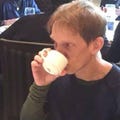
Scott is a veteran running, fitness, and health journalist who has held senior editorial positions at Runner’s World and Running Times. Much of his writing translates sport science research and elite best practices into practical guidance for everyday athletes. He is the author or coauthor of several running books, including Running Is My Therapy, Advanced Marathoning, and Meb for Mortals. Scott has also written about running for Slate, The Atlantic, the Washington Post, and other members of the sedentary media. His lifetime running odometer is past 110,000 miles, but he’s as much in love as ever.

